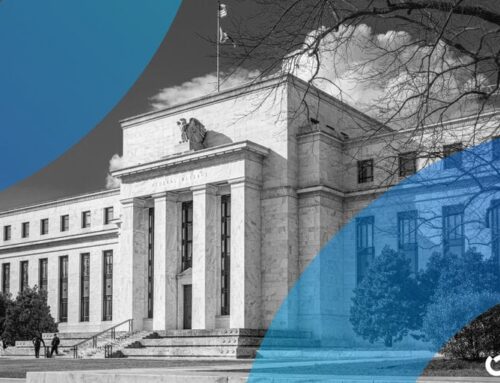Buying an investment property: What you should know to get started
June 20, 2025
You’ve got your own financial house in order—bills are paid on time every month, you’ve got an emergency fund in a high-yield savings account, and you’re saving for retirement. Maybe you’ve even got investments such as a CD ladder in your portfolio. Now, you’re starting to think about buying an investment property to rent out or flip.
Real estate investing can be an excellent avenue to help you build long-term wealth. But, buying a property you intend to rent to tenants or fix up and resell is a little different than buying a primary residence when it comes to financing. We’ll explain.
An investment property is a real property that you buy to generate a profit. Breaking that down further, real property means land and any structures on the land.
If you’re ready to become a landlord and rent out the property, your aim is to charge a rate that will cover the home’s monthly expenses and offer long-term returns on your investment over time. But if you’re planning to flip the property, your aim is to buy at a discount, spend perhaps six months to a year making strategic improvements, then sell at a profit.
In 2024, 13% of homes that were sold ended up purchased by an investor, according to a Realtor.com report. That’s up slightly from 12.7% in 2023 but down from a peak of 13.3% in 2022.
Unless you have a lot of cash, you’ll likely need financing to buy an investment property. To account for the higher risk of default on investment properties, lenders typically have more stringent requirements to buy an investment property, including:
- Higher down payment amounts: Expect to put 15% to 20% (or more) of the property’s purchase price as a down payment. This is notably higher than the 3% to 5% minimum down payment requirement on many conventional loans for primary homes to account for the higher risk of default on investment properties.
- Higher credit score minimums: You’ll need a minimum credit score of 620 or higher for conventional investment property loans, however, many lenders might have a higher requirement of 680 or more, says Darren Stroud, SVP and branch manager with Go Mortgage in Spartanburg, South Carolina. To get the best rates, aim for a credit score in the 700s, Stroud adds.
- Ample cash reserves: You’ll need at least three to six months of cash reserves on hand to qualify for many investment property loans, depending on your loan amount. The more reserves you have in place, the more peace of mind you’ll have if you can’t rent out or resell the property right away, Stroud says.
When deciding whether to buy an investment property, also consider whether you want to deal with tenants directly or hire a property management company, which is an added monthly expense. The same goes for fixing up the home and reselling it: Will you do all the remodeling, or do you need to hire contractors?
While many investors pay cash for rental properties or homes they plan to fix and flip, you have a few options for financing an investment property. Below are the most common ones.
You can get up to 10 conventional, agency-backed mortgages for investment properties. Non-QM lenders have different criteria for taking out multiple investment property loans, but as long as you qualify for each loan, there are no limits on the number of loans you can take out.
It’s possible to qualify for conventional financing for investment properties with as little as 15% down, or an 85% loan-to-value ratio and a minimum credit score of 680. You can finance a total of 10 properties of up to four units—your primary home and up to nine second homes or investment properties—with conventional financing, Stroud notes.
Keep in mind that conventional loans have loan limits and you have to qualify for each loan you apply for, which might be challenging depending on your debt-to-income ratio (DTI) and amount of cash reserves.
Fixed-rate mortgages, where the interest rate stays the same for the life of the loan, are vastly more common than adjustable-rate mortgages. With the latter, there’s an initial fixed period followed by adjustment periods where the interest rate can increase or decrease based on a few different factors. But, real estate investors may find ARMs worth considering when they intend to sell a property before the introductory fixed period ends.
While you can’t use government-backed loans to buy an investment property outright, you can purchase a multifamily property (up to four units) as a primary residence, live in one unit and rent out the others for income. This is known as “house hacking” and is permitted with FHA and VA loans. FHA loans have loan limits that vary based on where in the U.S. you’re buying the home; most VA loans do not have loan limits.
FHA loans require a minimum of 3.5% down (for borrowers with at least a 580 credit score) and VA loans require zero down payment. The VA itself doesn’t set minimum credit score requirements, but many lenders who offer VA loans set it 620 or higher—while some go as low as 580.
A non-qualified mortgage (non-QM) loan is a loan that doesn’t adhere to federal requirements for a qualified mortgage. Non-QM loan rates are typically higher than conventional loan rates for investment properties because they offer more qualifying flexibility and larger loan amounts.
A popular non-QM option for real estate investors is a debt-service coverage ratio (DSCR) loan, which qualifies you based on the projected cash flow a rental property generates. A common strategy for investors is to form a limited liability company for their investments, which provides tax benefits and protects their personal financial assets if they default on the investment property loan, Go Mortgage’s Stroud explains.
For instance, Deephaven Mortgage, which partners with originators across the U.S. providing non-QM products, allows a loan-to-value ratio of up to 80% (or 20% down) and a maximum loan amount of $2.5 million on its DSCR loans, according to Tom Davis, chief sales officer with Deephaven.
The lender requires three months of cash reserves for loan amounts of $1 million or less, and six months of reserves for loan amounts above $1 million.
Hard money loans are available through individual investors or private companies and often require collateral, such as a home, to secure the loan. They often have shorter repayment terms (just a few years), higher down payments and significantly higher rates than conventional financing. However, you can typically get these loans faster and with fewer hurdles than traditional mortgages.
It may be obvious, but you should be very sure you can repay what you borrow before taking out this type of financing.
Freddie Mac data show that the average rate for a 30-year, fixed-rate home loan passed 7% in January 2025—the first time rates had been that high since May of 2024. Though rates aren’t quite that high right now, they’re still near the 7% mark for 30-year mortgages.
Still, that doesn’t necessarily mean now is a bad time to proceed with an investment property.
“Seasoned real estate investors continue to purchase despite market volatility and higher interest rates,” says Davis of Deephaven. “During times of higher rates and home affordability challenges, renting can be more in demand. Real estate investors might be less concerned with the interest rate since this represents a potentially more profitable opportunity.”
If growing a real estate portfolio is a future aspiration of yours, the first step to take is assembling the right team to support you and help you identify red flags, says Daniel Mirabel, principal with New Jersey-based NUIC Developments.
Your team should include an experienced, local real estate agent, a lender who specializes in investment financing, a real estate attorney, a home inspector, and a title agent, Mirabel recommends.
When you purchase an investment property, you and your team need to do your due diligence and ask the right questions, Mirabel says. These include:
- What is the current or projected income?
- What are your estimated monthly expenses, including the mortgage payments, property taxes, homeowners insurance, homeowners or condo association fees (if applicable), utilities, and maintenance costs?
- Is the property part of an HOA and, if so, what are the fees and rules? What are the financials of the association as well as any pending actions?
- Can you manage the rental yourself, or do you prefer to hire a property management company (and how much does it cost)?
- How long has the property been rented, and what is the historical occupancy rate?
- How often do tenants move out, and what’s the reason for the turnover?
- Is the property in lease-ready condition, or will it require repairs or renovations? How long will those take and how much will they be?
- Is the neighborhood on a growth trajectory, or are property values declining?
- Are there any future developments that might impact property values?
- Will the property generate positive cash flow, or will it require additional investment?
- What is the capitalization rate (a formula that determines how profitable a property is compared to its purchase price) and how does it line up with similar properties nearby?
- Is the property zoned for residential use? Are there any restrictions on short- or long-term rentals?
- If the property is a fix-and-flip investment, how long will it take to renovate and flip?
If you’ve decided you’re ready to buy an investment property, there are numerous financing options to consider, including conventional mortgages, non-QM loans, and hard money loans. Just be prepared that whatever financing route you take, requirements will likely be more stringent than if you were buying a home to live in as your primary residence.
Buying an investment property is a time-tested method for building long-term wealth and generating passive income, but it’s not without risk. Working with an experienced real estate agent to identify up-and-coming areas with prime investment opportunities, and a conscientious mortgage professional on the right financing, can help you succeed in this endeavor.
Introducing the 2025 Fortune 500, the definitive ranking of the biggest companies in America. Explore this year’s list.
Search
RECENT PRESS RELEASES
Related Post




